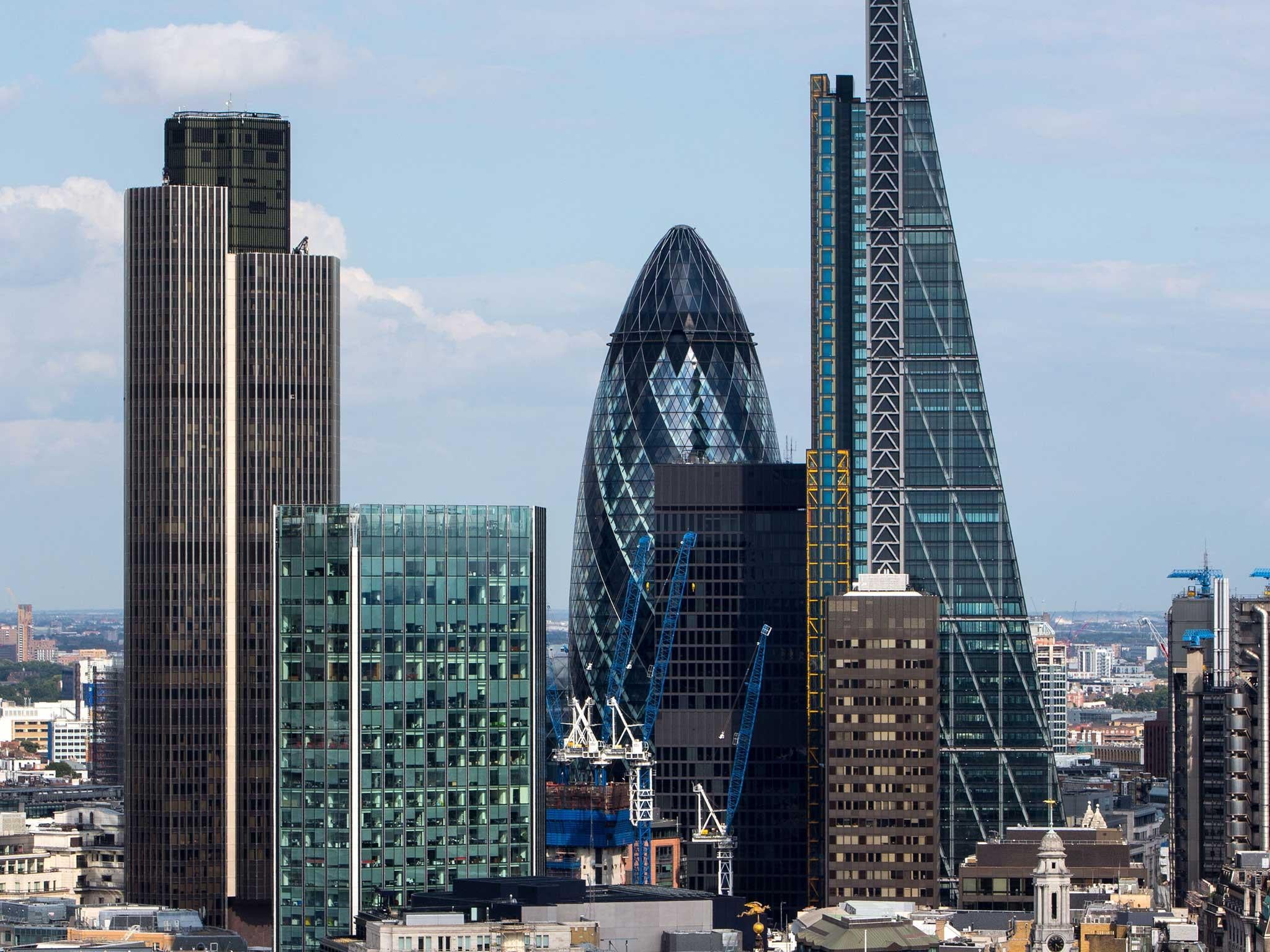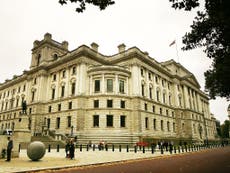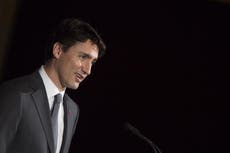The Independent's journalism is supported by our readers. When you purchase through links on our site, we may earn commission.
After the latest growth figures, the Tories may have to rethink their Brexit strategy
For three centuries the Conservative Party has existed to protect, preserve and increase the wealth of the nation. When that wealth demonstrably starts to be reduced, its politics will have to change


Like gear wheels with half the cogs missing, one can almost hear the crunching as economics and politics clash and grind against each other in the new economics of Brexit. Today’s figures show the wisdom of the intervention by Mark Carney and the Bank of England soon after Brexit. Interest rates were cut and monetary policy further loosened – in effect providing Britain with the cheapest money in a century.
That quietened the fears of the immediate post-Brexit panic when some investment funds had to suspend normal business as savers were pulling their money out. It did not help save the pound which has seen its sharpest devaluation in memory.
The long warm months that followed Brexit boosted outdoor spending, restaurants and, for any European or American visitor, everything in London stores or the Edinburgh Festival stalls dropped abruptly in price.
But the growth figures at 0.5 per cent are lower than in the same third quarters of the years when David Cameron was prime minister, except in the shaky period after his return to power in 2015.
Brexitnomics has yet to be tested. Nothing actually happened on 23 June or in the balmy weeks that followed that actually changed any of Britain’s economic relationships with the world’s biggest single market. Yet in the three months since then, industrial production, construction and agriculture have all seen falls in activity. It is these same figures that, in 2017, will give a definitive indication about what Brexit means.
Philip Hammond has been in his best Dr Pangloss mode, saying the British economy was the best in the best of all possible worlds but he knows the impact of Brexit has yet to hit the UK economy.
More important were the statements from General Motors – that Brexit had cost the firm $400m in lost sales mainly due to the huge devaluation – and the giant Swiss-Swedish machinery producer ABB, that Brexit has led to a 56 per cent drop of sales to the UK.
Also largely ignored was the candour from the trade minister Mark Garnier, in a Bloomberg interview, that every City firm will lose its “passporting” rights once full Brexit happens. Already the governments and central bankers of major EU nations have made clear that the City’s $120 trillion volume of trades and clearing in euros will be repatriated to the eurozone. Christian Noyer, the former Governor of the Banque de France, echoes Margaret Thatcher by proclaiming: “We want our money back!”
In Crash, Bang, Wallop, his new book on Margaret Thatcher’s Big Bang, the pro-Brexit writer Iain Martin points out that it was the arrival of the single market that transformed the City, as every foreign bank or investment firm could open up in London and do business without let or hindrance in every corner of Europe. If Theresa May maintains her vision of a hardline Brexit by insisting on bringing in work permits, quotas, and other measures seen as discriminatory against Europeans, the doors currently still open to business in Europe will clang shut.
Every day brings reports of investment decisions now on hold and City firms quietly relocating the EU trading parts of their business into Europe.
Firms continue to produce and the longstanding plans to make new car models at the Nissan plant in Sunderland are now confirmed as an abrupt closure of the plant was never likely to happen. May appears to have promised a special taxpayer’s subsidy to Nissan in the event of EU tariffs post-Brexit. She will have to offer similar subsidies to other carmakers or major exporter, and some of these will fall foul of international trade rule banning state aid or market distorting subsidies.
Every university reports difficulties over bringing the best foreign brains to a Britain where politics has created a new climate of fear and worry among non-UK passport holders.
At some stage, all this will work its way into politics and only the actions of Tory MPs matters; the opposition parties are on the touchline.
For three centuries the Conservative Party has existed to protect, preserve and increase the wealth of the nation. When that wealth demonstrably starts to be reduced – and we won’t know that for 18-24 months – will Tory politics get into gear with real-time economics? On the answer to that question hangs the Prime Minister’s fate and Britain’s future. Today’s statistics, however, are no guide.
Denis MacShane is the former Labour minister for Europe. He is the author of 'Brexit: How Britain left Europe', published by IB Tauris



Join our commenting forum
Join thought-provoking conversations, follow other Independent readers and see their replies